How to measure stairs for carpet - the expert guide to getting it right
Knowing how to measure stairs for carpet means your stairway to design heaven is assured
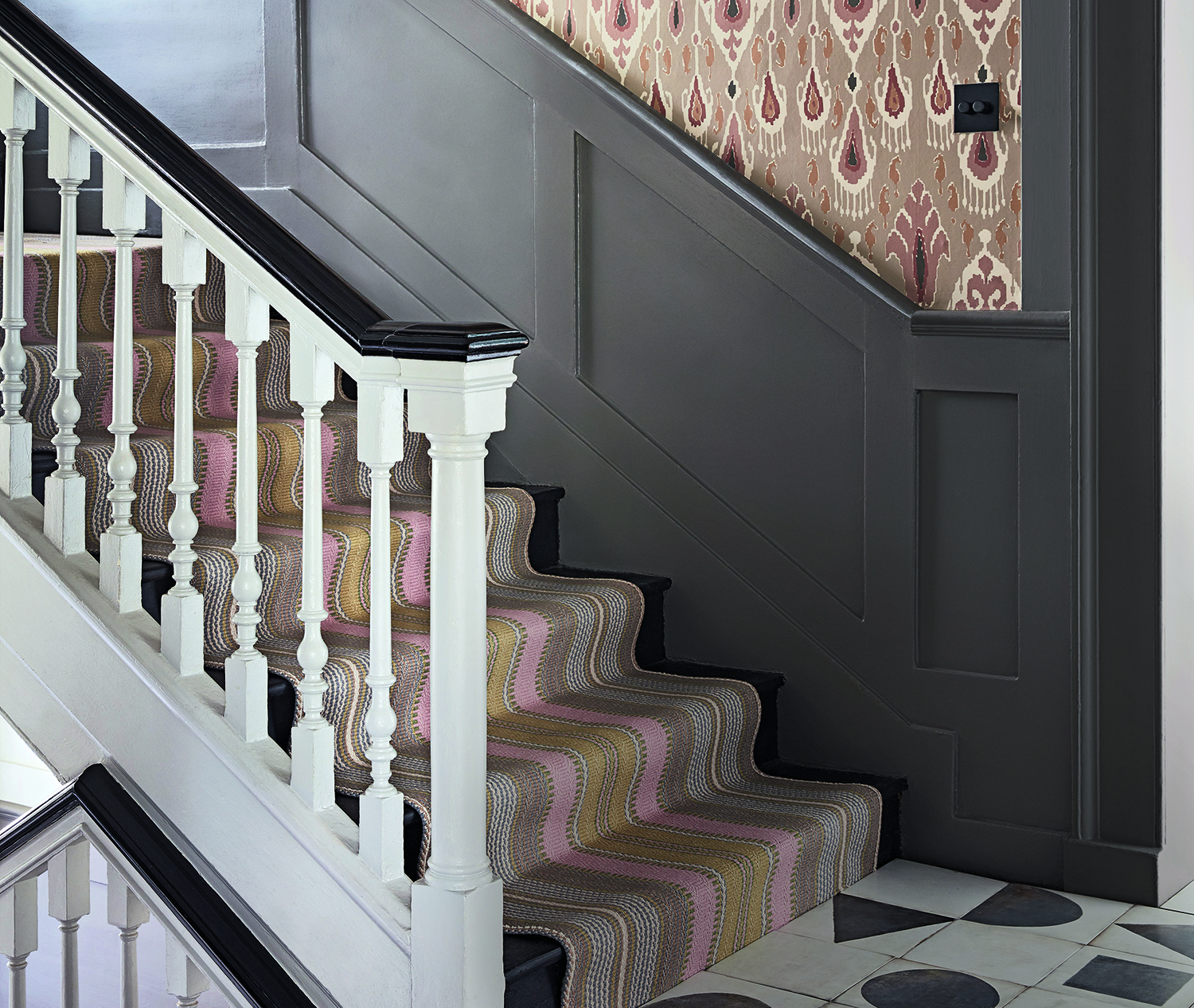
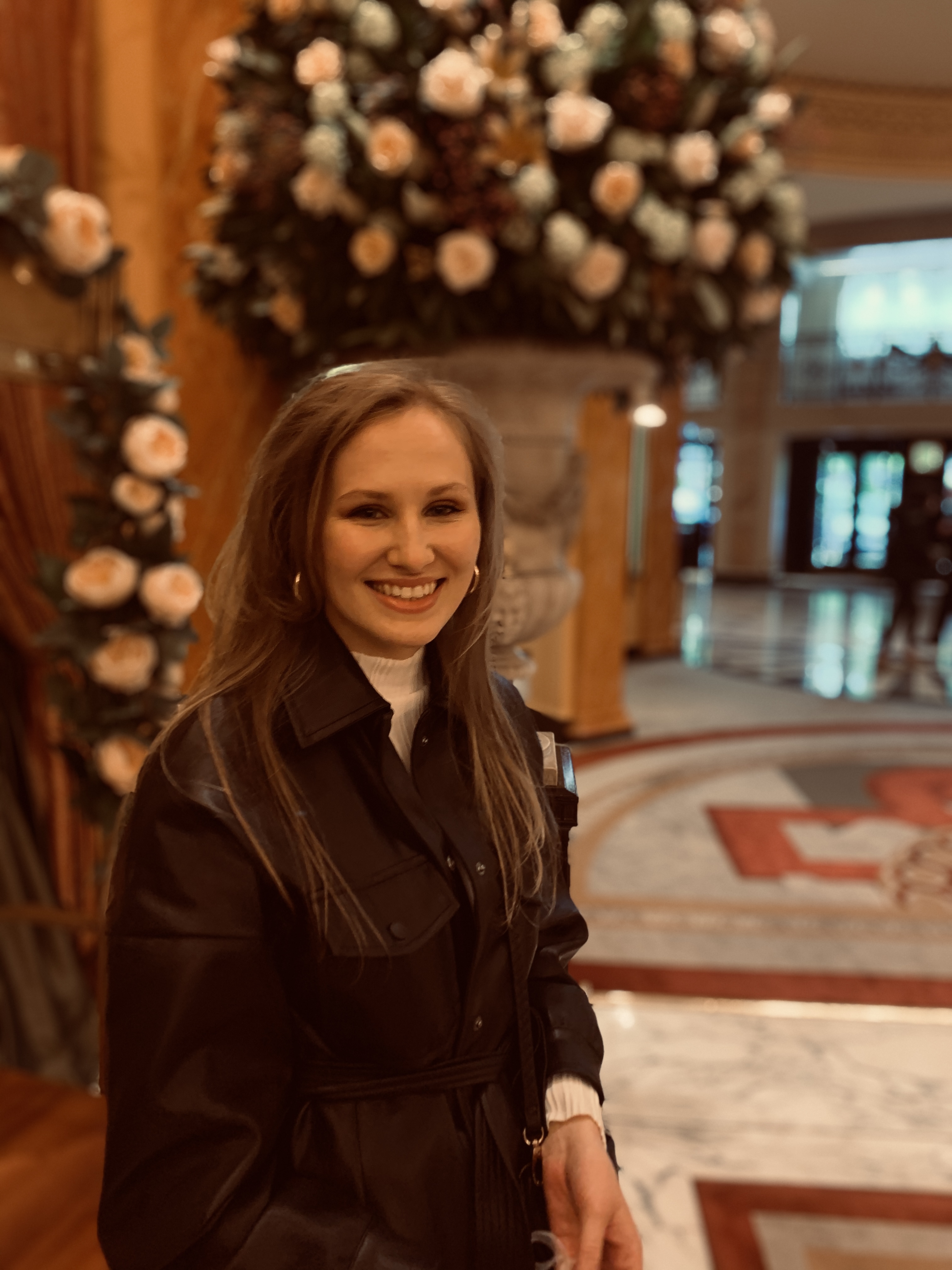
Wondering how to measure stairs for carpet is a common problem when decorating a home. Because once you've tackled your staircase ideas, and chosen the material, style and shape, the finishing touches can be just as tricky. A well-considered staircase carpet can transform dull staircases and landings into exciting features, as well as set the tone for the rest of your home.
When it comes to fitting a new carpet, calculating how much carpet you’ll need for your staircase can be a tricky task. That’s why it’s important to get the measurements right.
This general guide will give you an idea of how to measure your stairs, what carpet materials to consider and how much you should expect to spend.
How to measure stairs for carpet
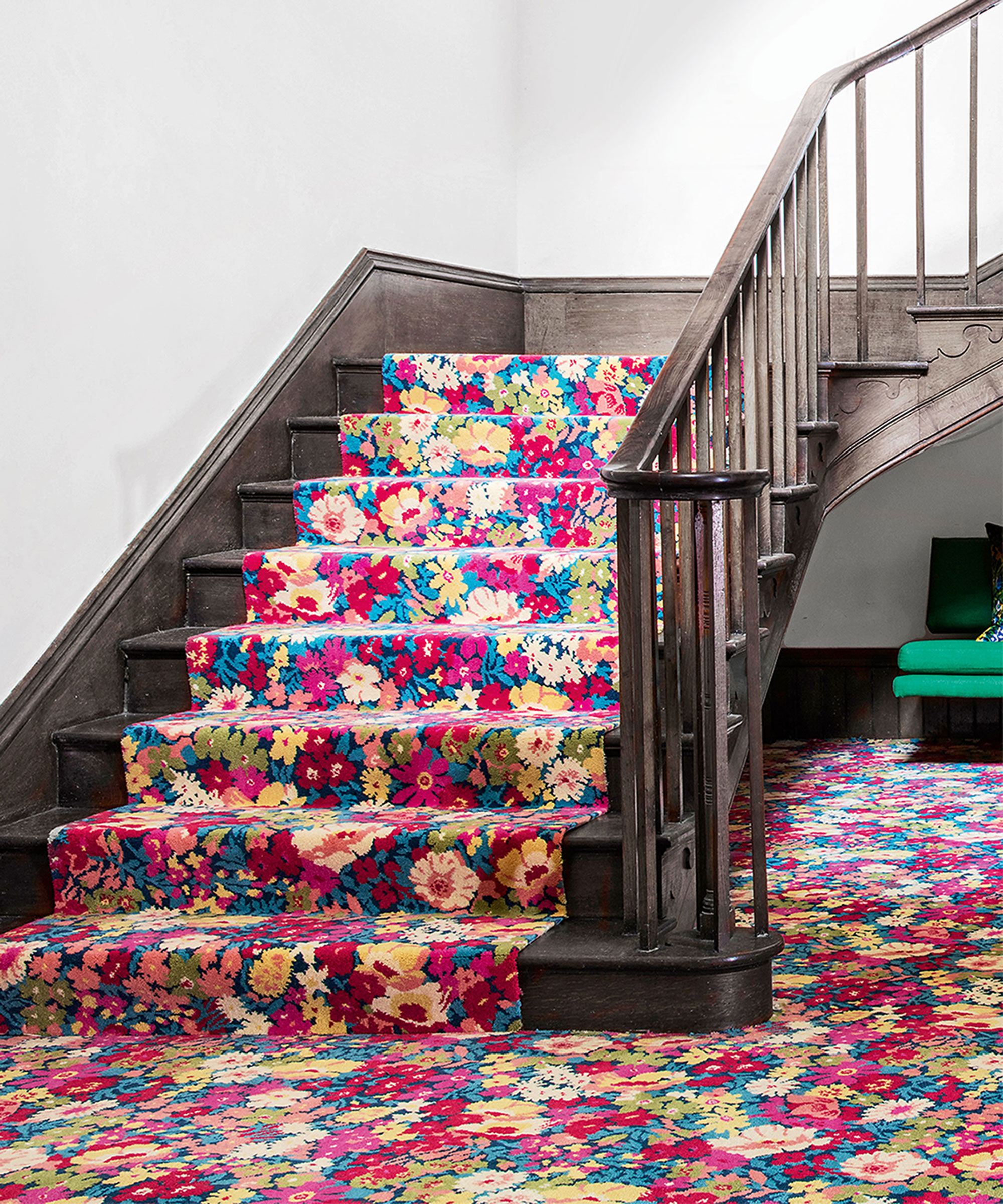
Liberty Fabric carpet by Alternative Flooring
Once you've decided how to decorate a staircase, we’d always suggest hiring a professional carpet fitter to do your measuring and fitting. But if you’d like to get the tape measure out yourself, then read on.
‘Stairs can often seem like a tricky area to measure though the process is surprisingly similar to that of measuring a standard room,’ says Punam Chada, Buyer at Carpetright.
‘Start by measuring the height and depth of each step and adding them together. This will give you the length. Then measure the width of your stairs and multiply the two figures. This will give you the area of each individual step.
‘In order to calculate how much total area your stairs take up, simply multiply this figure by the number of steps in your staircase.
‘We recommend adding 10% to this total, as this will help cover for any unexpected errors.
‘If you aren’t confident, booking a professional measurement service will ensure you order the correct size of flooring. Alternatively, our virtual designs service offers the same great expert advice, all from the comfort of your sofa,’ adds Chada.
How do you measure square footage for carpet on stairs?
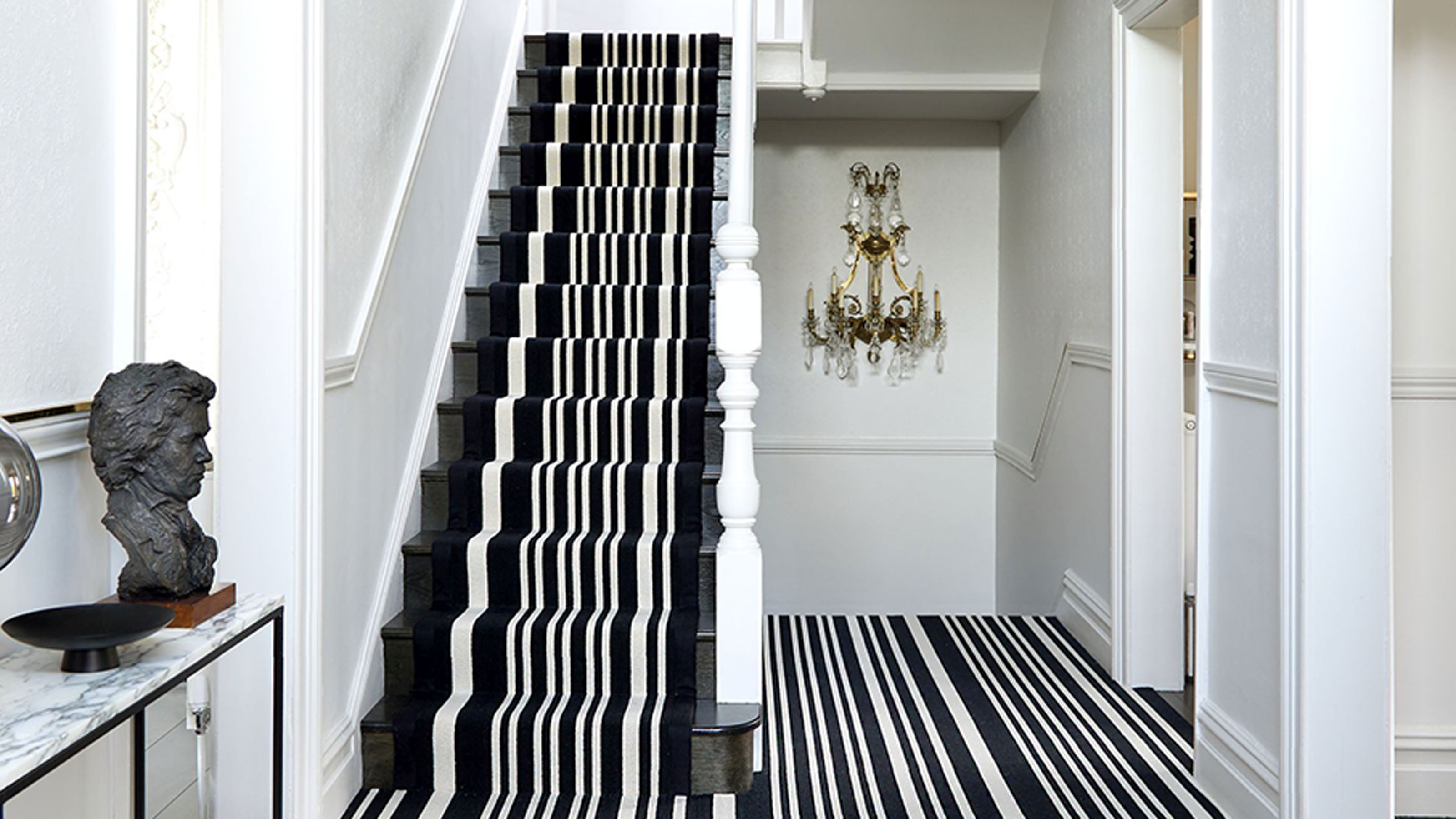
Step 1. To measure the square footage for carpet needed on stairs, simply measure the height and depth of one step in inches and add the numbers together. Include an inch extra to wrap around the nose.
Step 2. Multiply that by the number of stairs.
Step 3. Divide that number by 12 and round up to calculate the number of feet.
Step 4. Measure the width of your stairs and round up to the nearest foot. Multiple this number by the number previously calculated in Step 3 to calculate the square footage.
How much does it cost to carpet stairs?
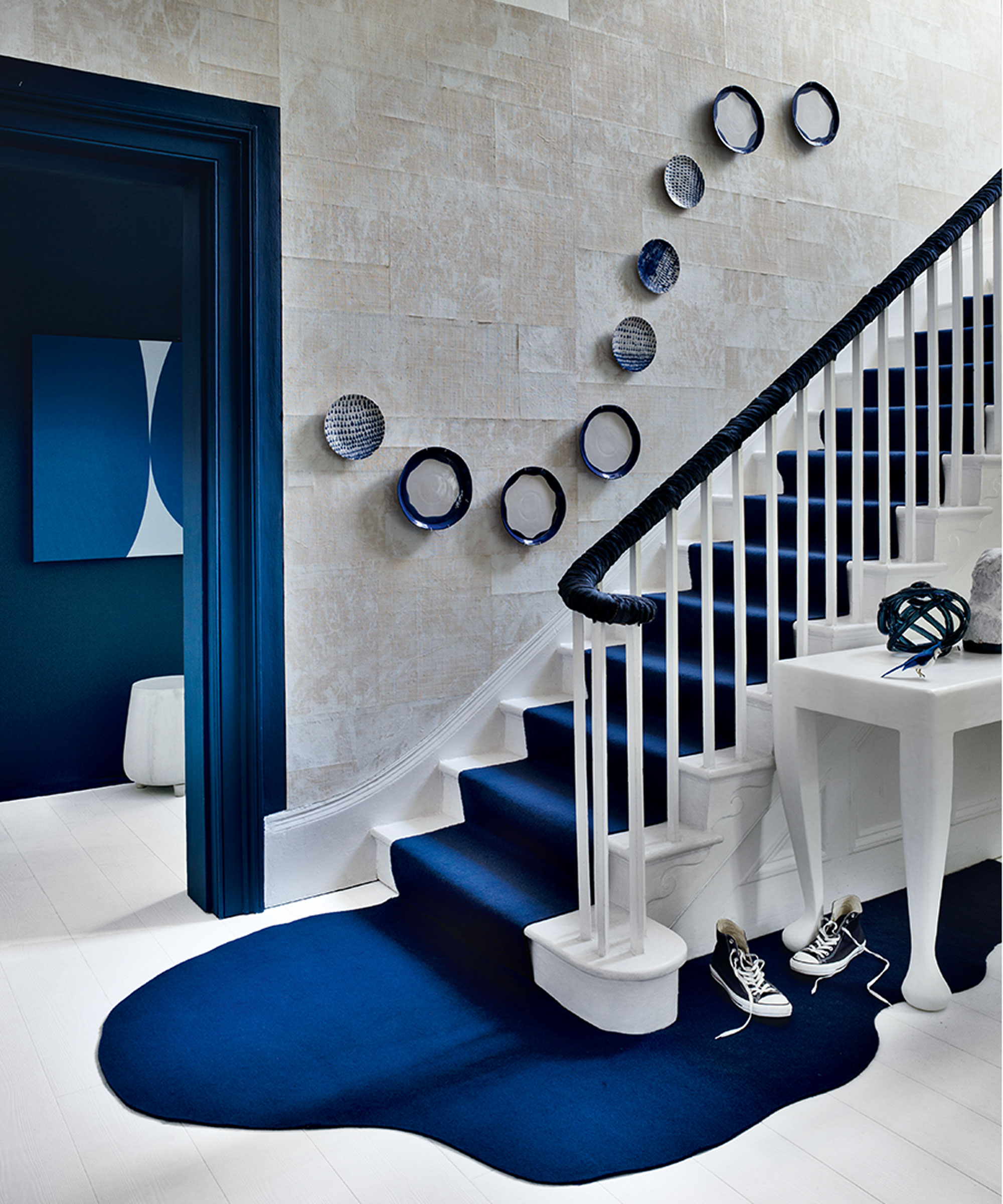
Carpet fitting can be costly depending on what type of stairs you have and what material you use.
The average cost of carpet will be between £15/$20 and £20 /$27 per square metre. And if you’re having an underlay, this will cost between £4/$5.50 and £10/$13.60 per square metre.
For an authentic woven carpet, such as Axminster carpets or Wilton carpets, you’re looking at an average cost of £60 per square metre. This type of carpet is a popular choice as it’s high quality and durable.
If you’re on a budget, however, a tufted carpet may be a better choice. These carpets can have either looped or cute piles. A tufted carpet is made when pile yarns are inserted, by needles, into a pre-made backing fabric. Prices can vary massively depending on the material you go for. A basic synthetic carpet can cost just a few pounds per square metre, whereas a basic wool carpet can cost from £12/$16 per square metre.
When it comes to fitting the carpet, the minimum cost of a carpet fitter is around £300/$400. The price will fluctuate depending on what part of your home you are carpeting.
How long does it take to put carpet down on stairs?
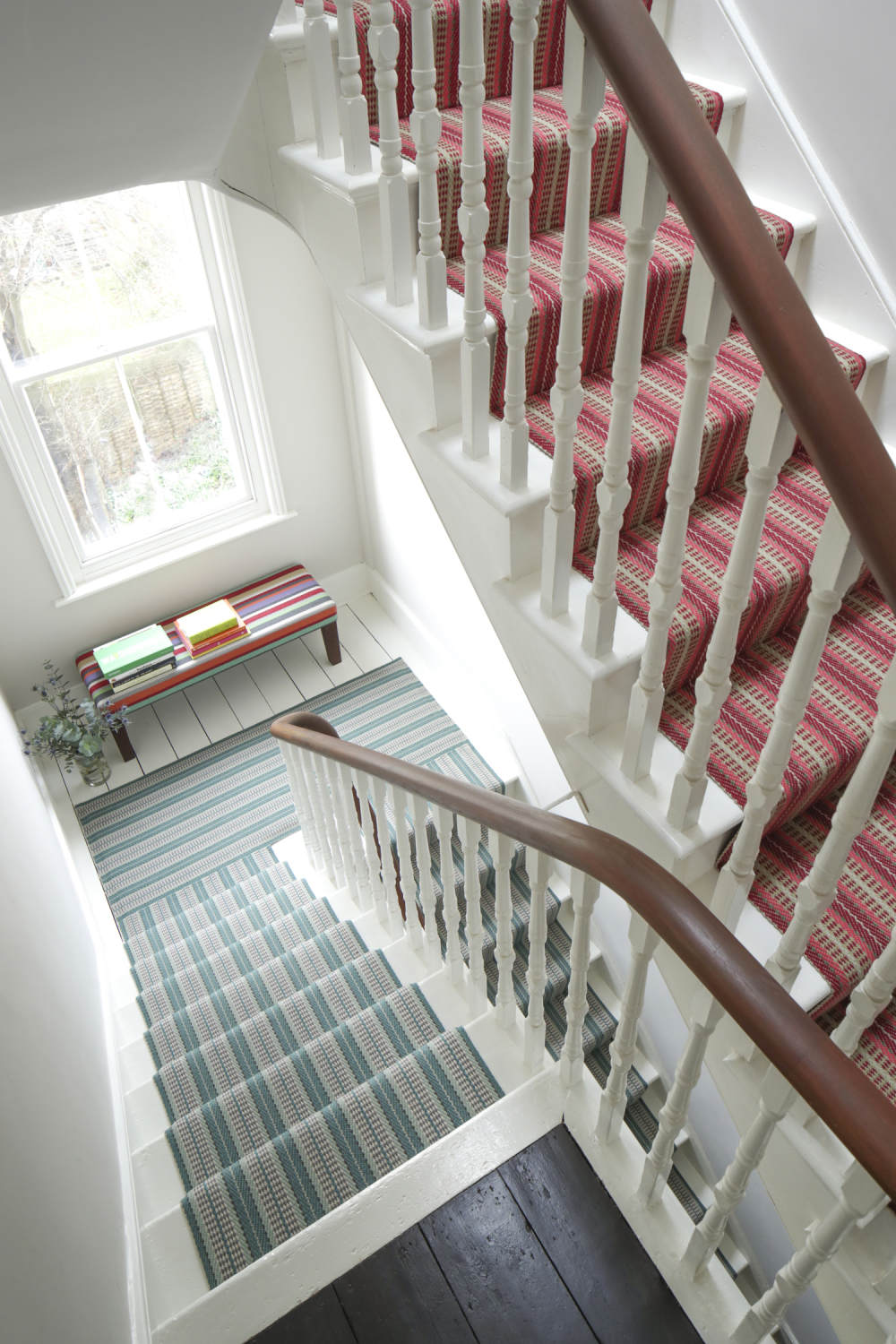
The amount of time it takes to fit a carpet depends on the amount of carpet that is being fitted and the quality of the fitting. However, it should take about five minutes per step and so the total job of fitting stair carpet should be fairly quick.
What type of carpet is best for stairs?
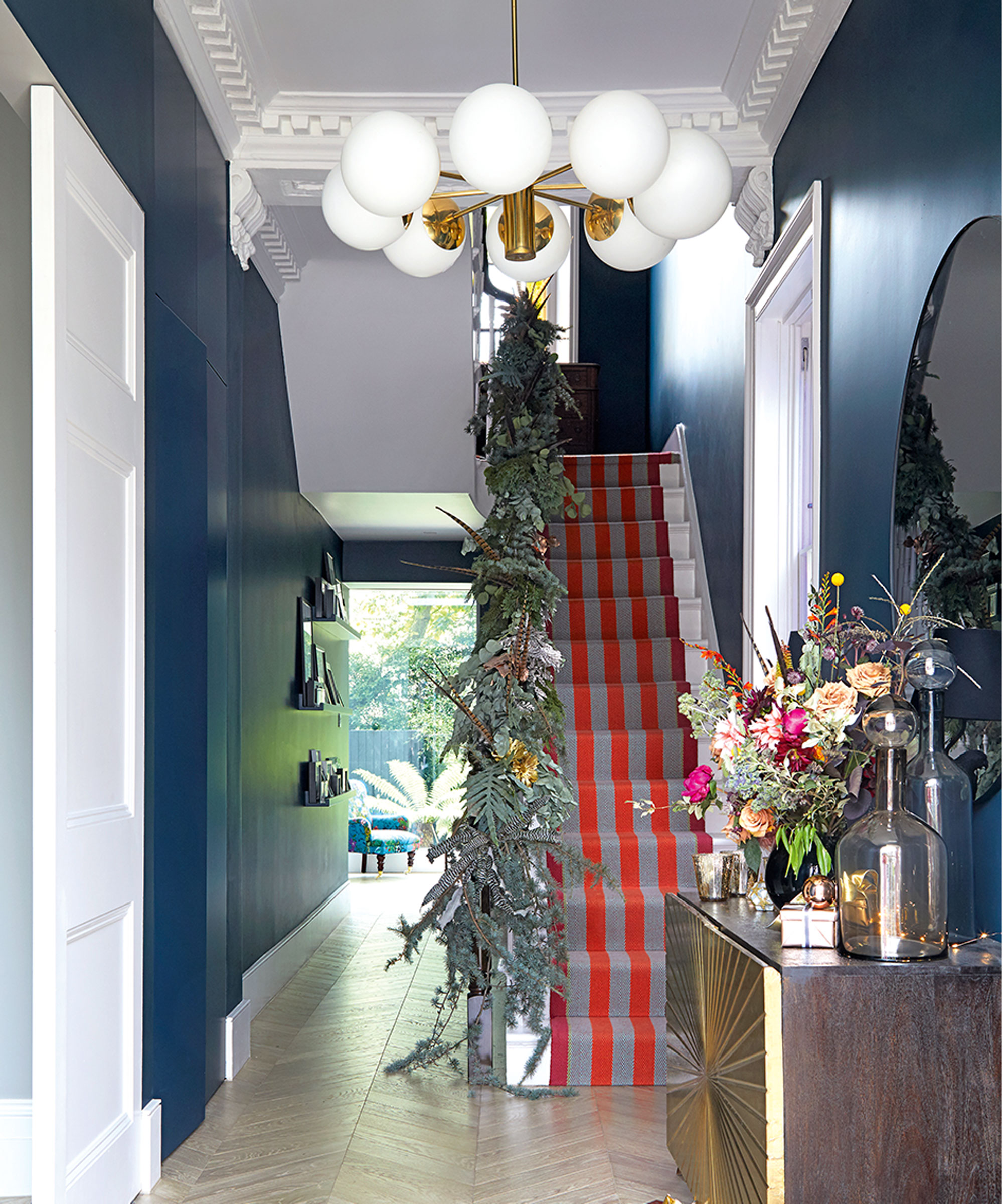
Woven and tufted are the two main types of carpet in the UK. Woven carpets tend to be more expensive as they are labour intensive, whereas tufted carpets are easier to produce and so less expensive.
‘Stair carpets tend to experience a lot of use over their lifetime,’ says Punam Chada. ‘A durable loop or twist style design will make a good choice. The specially designed fibres are durable and will withstand light spillages and can also be easily cleaned with a mild cleaning solution.’
How often should you replace carpet on stairs?
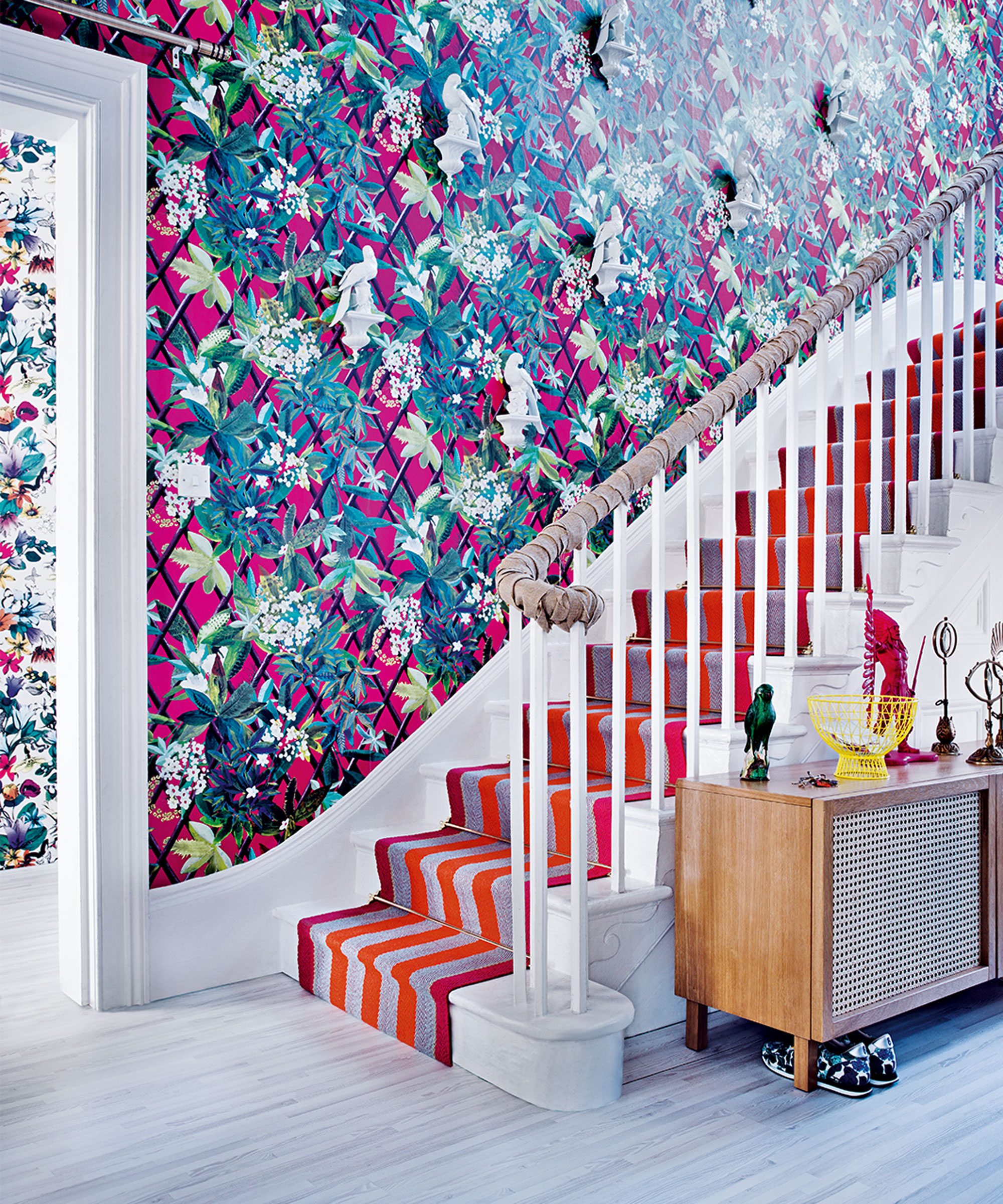
‘The longevity of your stairs will depend on many factors, including the amount of regular use and the style of flooring laid down,’ says Punam Chada. ‘On average, expect a good-quality carpet, paired with the right underlay in a relatively low-traffic home, to still look great ten years down the line.’
‘To increase your carpets longevity, it’s always worth investing in underlay as it increases insulation, reduces wear on the flooring and, most importantly, helps create a softer and more sumptuous feel. By acting as a shock absorber, protecting flooring from the comings and goings of a normal household, it ensures the carpet retains its quality,’ adds Chada.
How do you calculate carpet for stairs?

To calculate carpet for the stairs, simply measure the height and depth of each step and add the numbers together to get the length. Then measure the width of your stairs and multiply the two figures. This will give you the area of each individual step.
In order to calculate how much total area your stairs take up, simply multiply this figure by the number of steps in your staircase - this is an important equation in staircase carpet ideas.
How much does it cost to cover 13 stairs?
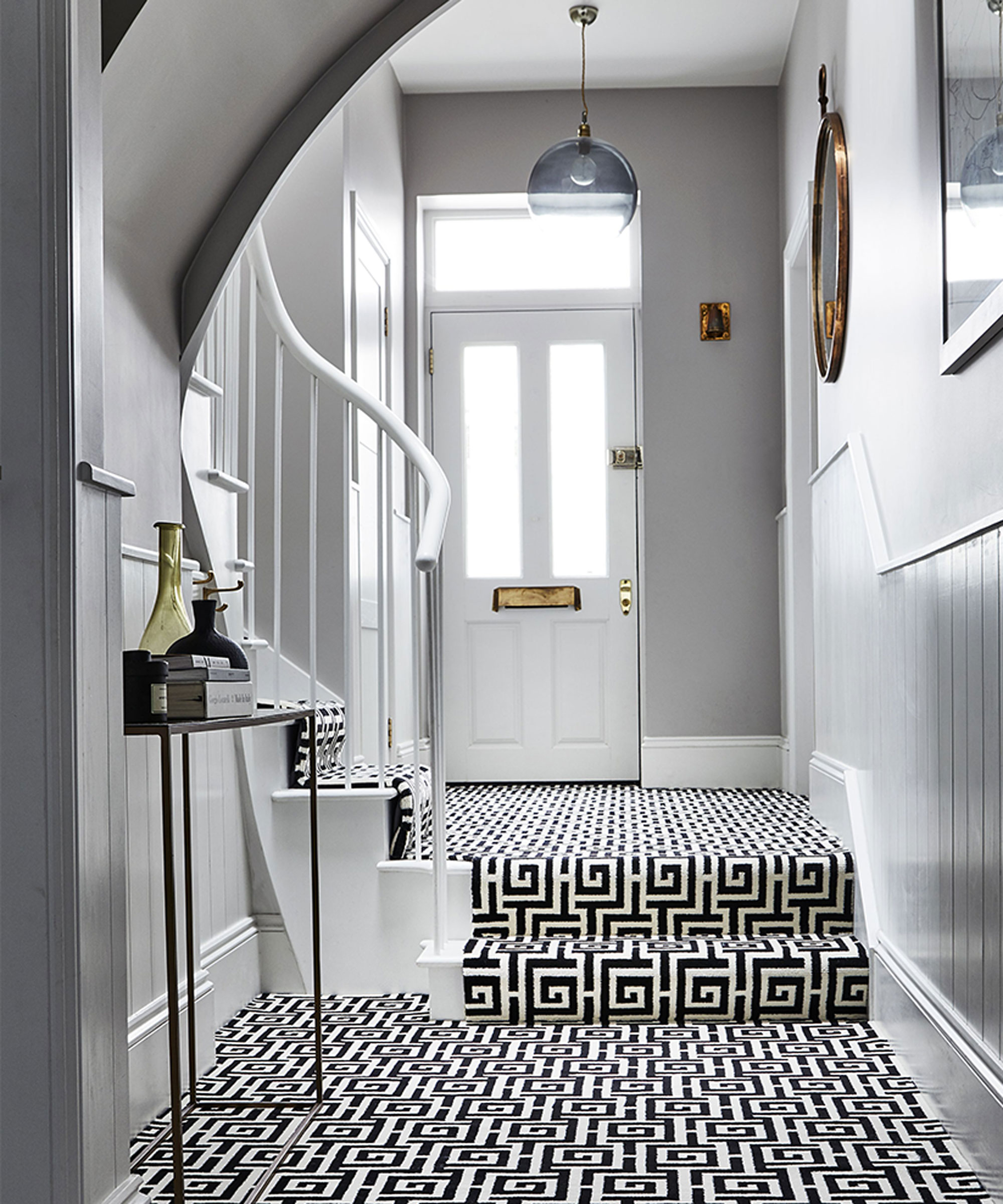
To work out how much it costs to cover 13 stairs, you’ll need to work out how much carpet you will need. Follow these steps:
Step 1. Measure the height and depth of each step and add these numbers together to get the length.
Step 2. Measure the width of the stairs and multiply the two figures to get the area of each individual step.
Step 3. Multiply this figure by the number of steps in your staircase, in this case it would be 13.
The average cost of carpet is between £15/$20 and £20/$27 per square metre, but what you pay will largely depend on what material you use.
When it comes to covering a straight set of stairs, you’re looking at spending between £80 and £100 on average. However, the price will vary depending on what materials you use, the type of staircase you have and if you need an underlay.
How much does it cost to carpet a 12 x 12 room?
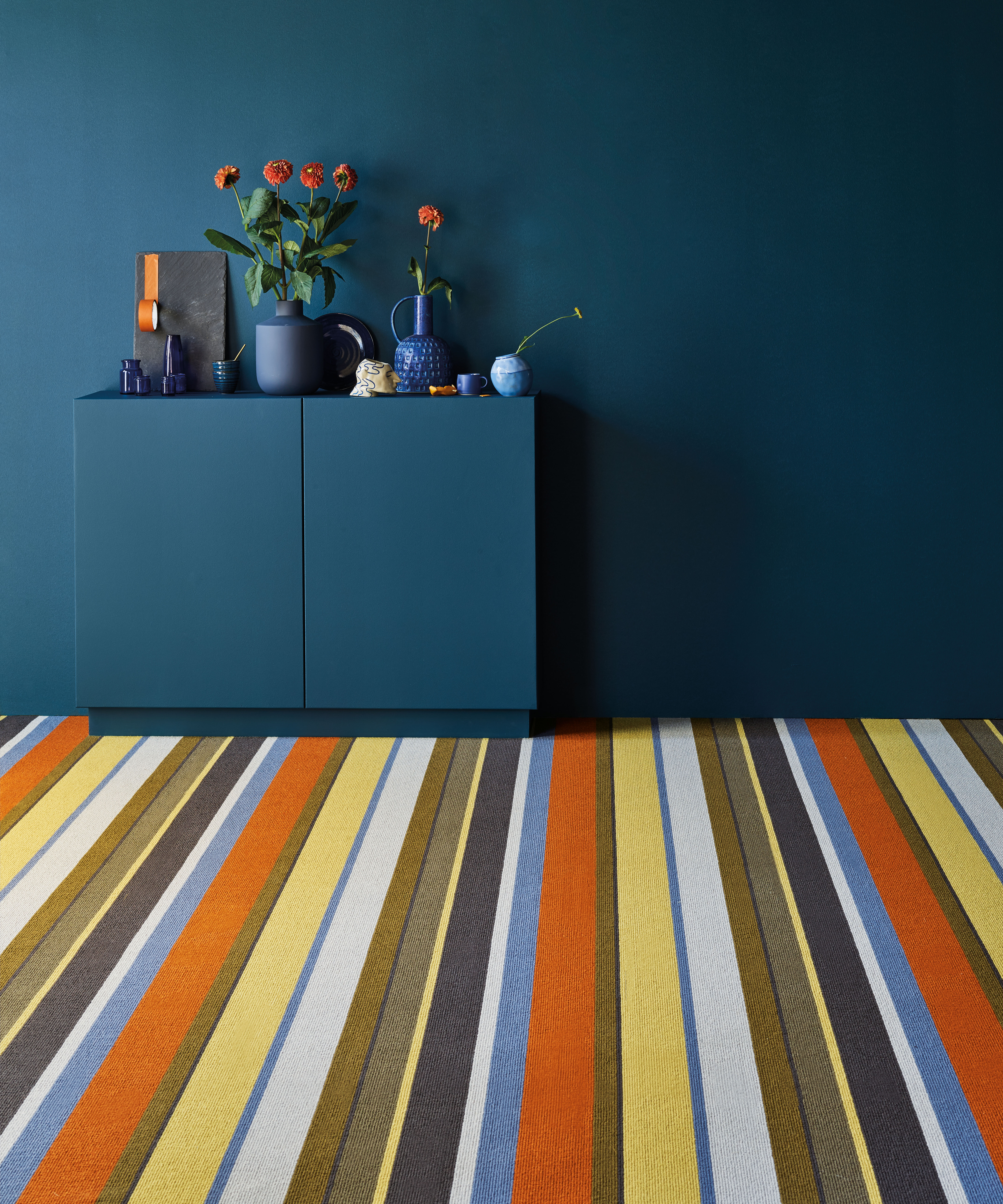
To calculate how much it costs to carpet a 12 x 12 room, you’ll first need to work out how much carpet you will need.
To do this, measure the width and length of your room using a tape measure. Then multiply the width by the length to get the area in square feet. So 12 x 12 is 144 square feet. Then multiply your figure by 0.09290304 to calculate the square metre. So 144 x 0.09290304 = 13.37803776 square metres.
The cost of the carpet will depend on the type of material you go for, however the average cost of carpet will be between £15 and £20 per square metre. Therefore, for a 12 x 12 room, you might expect the carpet to cost around £200/$270.
Be The First To Know
The Livingetc newsletters are your inside source for what’s shaping interiors now - and what’s next. Discover trend forecasts, smart style ideas, and curated shopping inspiration that brings design to life. Subscribe today and stay ahead of the curve.

Nicky Morris is a freelance journalist specialising in interiors and design. Covering everything from staircase lighting ideas to Ikea hacks to outdoor kitchens to tips for hiding radiators, she writes for Livingetc and Homes & Gardens and has previously written for Tempus Magazine. She also covers TV writing, and has written for Hello! magazine.
-
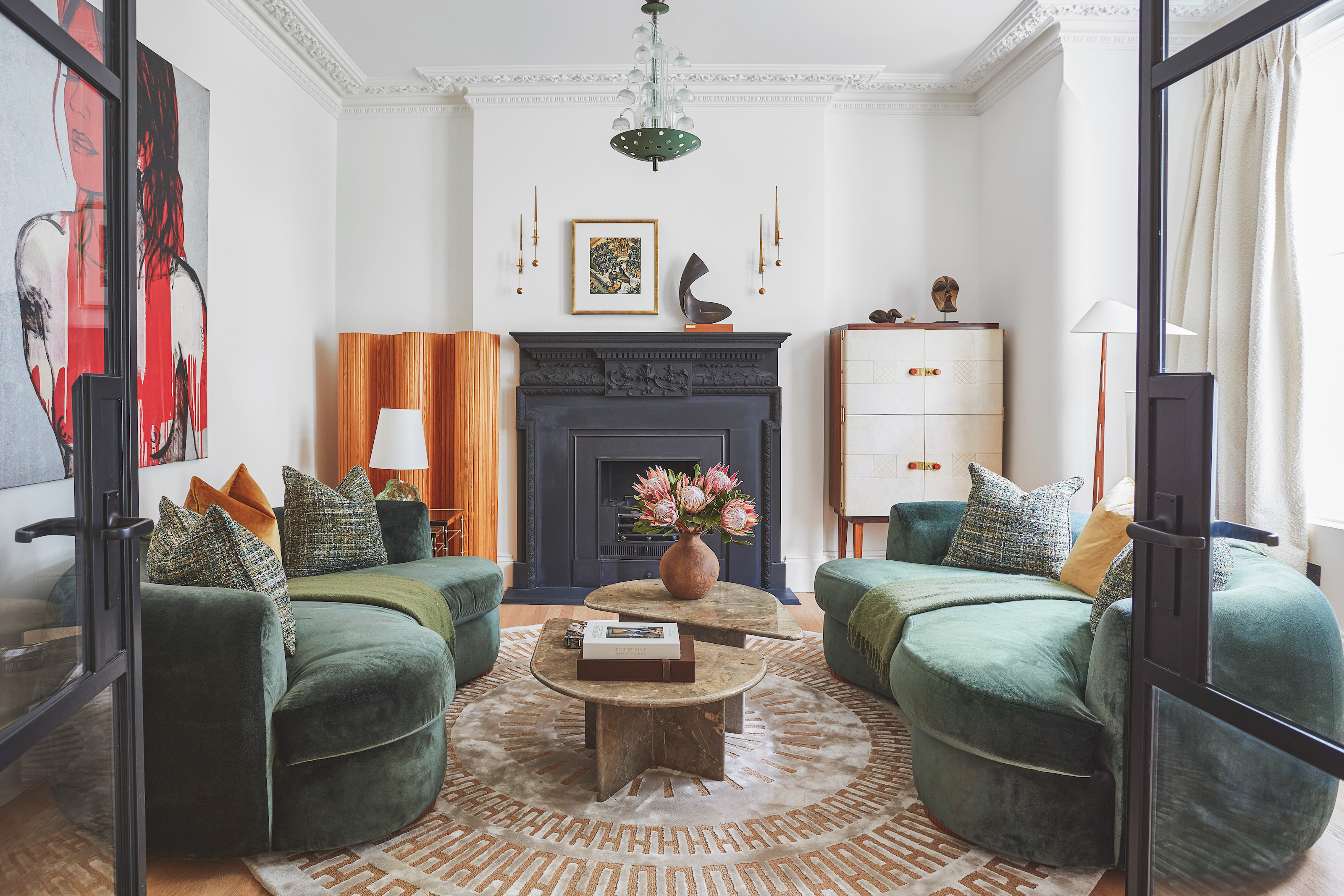 The 'New British' Style? This Victorian London Home Embraces Its Owners' Global Background
The 'New British' Style? This Victorian London Home Embraces Its Owners' Global BackgroundWarm timber details, confident color pops, and an uninterrupted connection to the garden are the hallmarks of this relaxed yet design-forward family home
By Emma J Page
-
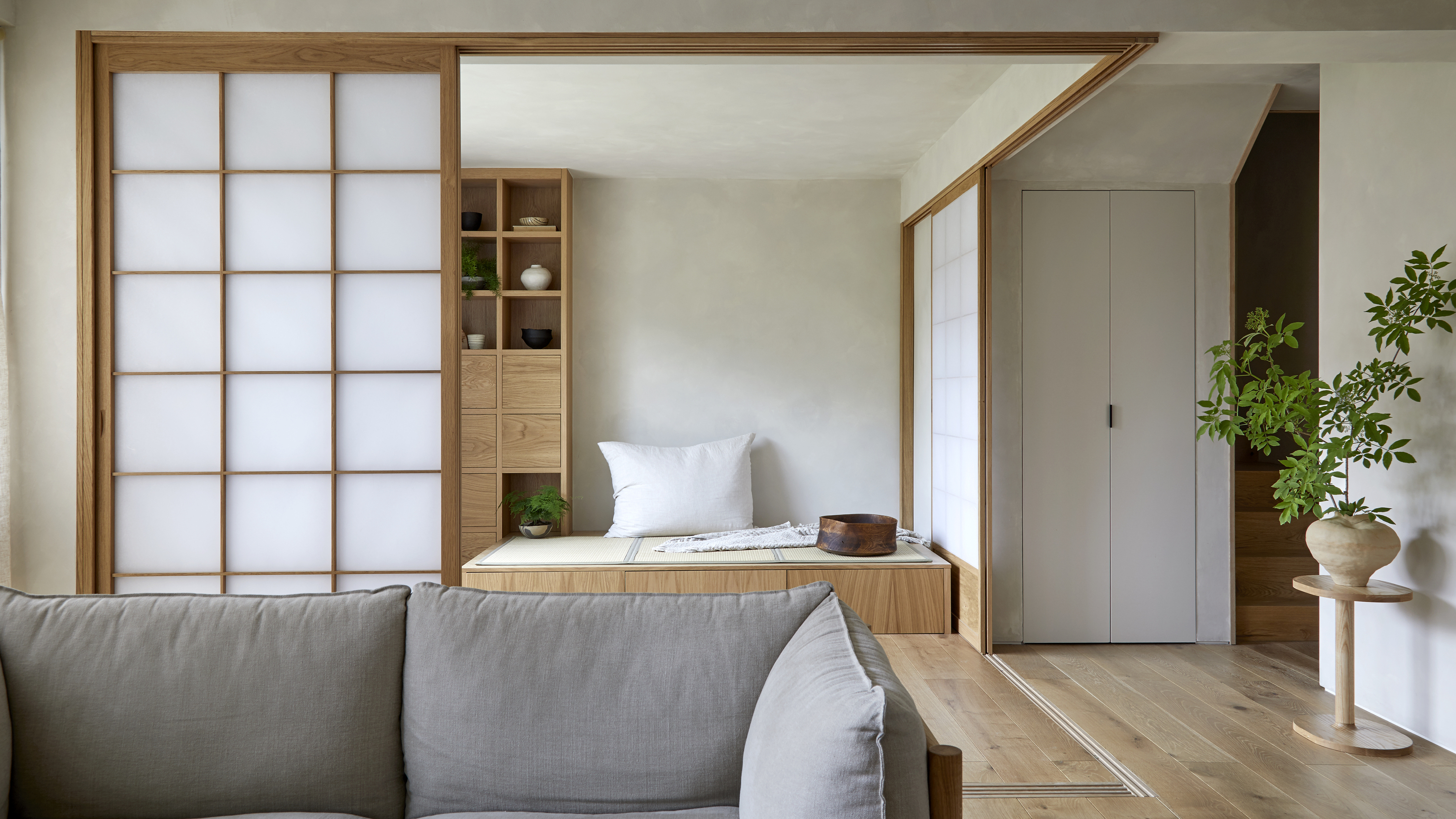 Muji Living Room Ideas — 5 Ways to Harness The Calming Qualities of This Japanese Design Style
Muji Living Room Ideas — 5 Ways to Harness The Calming Qualities of This Japanese Design StyleInspired by Japanese "zen" principles, Muji living rooms are all about cultivating a calming, tranquil space that nourishes the soul
By Lilith Hudson